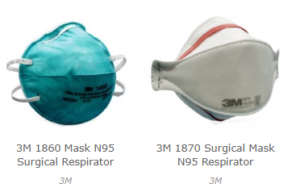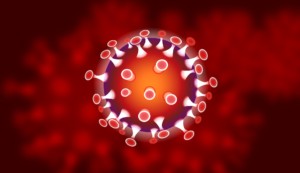Avoiding people who are coughing and sneezing is always a good practice. It’s always prudent to wash your hands often, and to keep hand sanitizer (alcohol-based with at least 60% alcohol) and disinfectant wipes on hand. And yes, do use the wipes provided by the grocery store (or your own) to wipe down the handle and seat of the shopping cart. After all, no one wants the flu at any time! These steps aren’t “only for flu and viral outbreaks,” they’re excellent habits that help stop any kind of germ transmission to/from others at any time. Also, when you cover a cough or sneeze, do so into the crook of your arm or into a tissue (and discard), and not onto your hand. If you feel you are becoming ill, by all means, stay home!
Dealing with the Coronavirus aka Covid-19 Outbreak
During a viral outbreak, it becomes necessary to take additional precautions. Work on not touching your face. We all tend to touch our faces a lot which can quickly transmit unwanted germs into our eyes, nose and mouth. Also, use disinfectant wipes to clean and disinfect objects and surfaces in your home and office space that are frequently touched, i.e., counter tops, desk tops, keyboards, tablets, phones, the TV remote, light switches, various handles and doorknobs, and steering wheel of your car.1
Immunocompromised People
If you are immunocompromised or have other lung or heart conditions, avoidance is the best possible choice. Consider getting home deliveries from the supermarket and other places for sundries and staying home. The virus does worse in dry and hot conditions. Consider using a dehumidifier at home and doing nasal rinses.
Should I Wear a Mask?
Healthcare authorities have not advised wearing masks in public but do recommend wearing them for health professionals in health care settings caring for infected or possibly infected patients or for people caring for an infected person at home. This is for 2 reasons: the first is they are concerned about a short supply in healthcare workers; the second is because they do not feel the public will use the masks properly and may contaminate themselves.

In the Puget Sound area, healthcare workers are not using the N95 masks which are in short supply, but use PAPRs which stands for Powered, Air-Purifying Respirator, which filters the air you breathe and unlike the N95 mask does not require fit testing.2
If you need to use an N95 mask for an indicated reason, always handle the mask with clean hands and avoid touching the front part of the mask. 3M and other manufacturers have detailed videos on fit testing. N95 masks do not fit well with facial hair and are not meant for children.
If using a mask, watch that manufacturer’s video on FIT testing.
While laboratory tests with N95 masks in Influenza showed 100% protection when properly fitted, the results were a lot less stellar in clinical settings. When used in clinical settings, the N-95 filter mask did significantly reduce both self-reported and laboratory test respiratory illnesses when the literature is taken as a whole in the meta-analysis or summary of literature article cited here: Offeddu V1, Yung CF2, Low MSF1, Tam CC1,3.Effectiveness of Masks and Respirators Against Respiratory Infections in Healthcare Workers: A Systematic Review and Meta-Analysis. Clin Infect Dis. 2017 Nov 13;65(11):1934-1942. doi: 10.1093/cid/cix681.3
I do not know of any testing with the SARS-CoV-2 (The virus that causes COVID-19 illness) specifically but it is a virus of similar size to Influenza. SARS-CoV-2 is between 80-160 nanometers per particle and Influenza is 80-120 nanometers per particle The literature is not uniformaly supportive of the role of N95 masks however, likely because of fit issues which compromise its potential stellar effectiveness in labrotary settings.
One study of surgical masks and N95 masks in an outpatient clinic during flu season showed no difference in the rate of transmission using the mask that was supposed to filter the viral particles (N95) and the one that has no effect on that (the surgical mask). This is most likely either secondary to human error in fitting the mask, or in not watching for other modes of transmission from patients to hands or surfaces to hands and then to face. This is where washing your hands, gloves, and disinfectants would come in.
How Long Does the Virus Survive on Surfaces?
Recent studies are indicating the Coronavirus can survive from 2 hours to 9 days on surfaces.4,5 The implication: disinfect surfaces as previously stated, and if someone coughs or sneezes on your mask, discard it and use a new one. Always handle your mask with clean hands.
Travel, Shopping, and Large Gatherings
Limit non-essential travel, non-essential shopping, and large gatherings, especially for anyone on immunosuppressive medications such as steroids or rheumatological drugs. If traveling is necessary, use thick Nitrile gloves—double glove and use Clean Well disinfecting and hand wipes. Clean as much of your seat, armrests and tray as possible. Clean Well disinfecting and hand wipes have a non-toxic antiviral called Thymol. Avoid touching handles as much as possible—use thick folded tissues if possible, to handle faucets and soap dispensers to turn them off and on. See “Should I Wear a Mask?” above. Packaged food in the airport is likely the safest and there are prepackaged salads I have seen while traveling.
Caring for an Infected Person
Have one family member care for the person. The caregiver should wear gloves and an N95 mask when tending the ill person and the ill person should also wear a surgical mask when anyone enters the room. Use an air cleaner in the room. Try to quarantine the person in one part of the house and to their own bathroom, if possible.
Boost Your Immune System
- Eat an anti-inflammatory, low-glycemic diet of veggies, fruit, legumes, beans, organic grass-fed/forest-raised meats, and healthy fats, i.e., avocados, nuts and seeds. Avoid sugar, gluten, grains and dairy. Eat fermented foods if you are able.
- Get adequate sleep.
- Stay hydrated. Learn more: Dehydration: Water, Electrolytes and Healthy Rehydration
- Supplement your diet to make sure you are not low on Vitamin D3, antioxidants, and other important immune-boosting substances. See below for specifics.
Immune-Boosting Dietary Supplements Available Here:
- Vitamin K2 with D3 — “Deficiency in vitamin D is associated with increased autoimmunity as well as an increased susceptibility to infection.”6 Note: Vitamin K2 helps your body absorb Vitamin D3 into the proper channels.
- Zinc Rapid Absorb — Zinc affects multiple aspects of the immune system … and function of cells mediating innate immunity.”7
- Maximum Probiotic Complete — “Probiotics may help boost the immune system.”8
- Allergy Support Formula (an antioxidant-boosting formula of bioflavonoids: quercetin, dihydroquercetin, rutin, N-Acetyl-Cysteine, Bromelain, Urtica dioica, and Vitmin C) — “Antioxidants may interfere with the disease process.”9 Could antioxidants be influenza’s Achilles’ heel?10
- Methylated B Complex — B12 and folate are essential for white blood cell production and function. Ours are methylated so the 25% of the population who is unaware they have a deficiency in processing B vitamins can still benefit.
Please remember to first discuss these, or any other dietary supplement you take or wish to take, with your physician as dietary supplements can react with medications as well as with one another.
Please stay informed about the Coronavirus via the CDC at: Coronavirus Disease 2019 (Covid-19)


